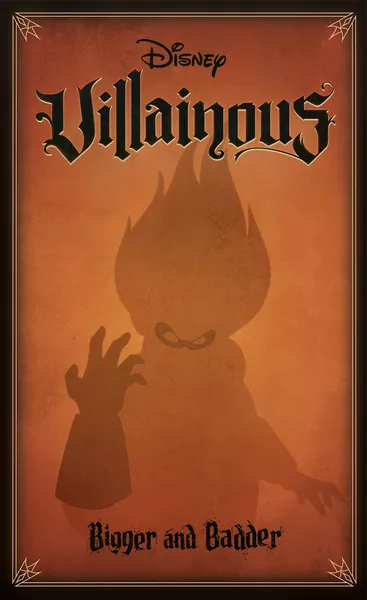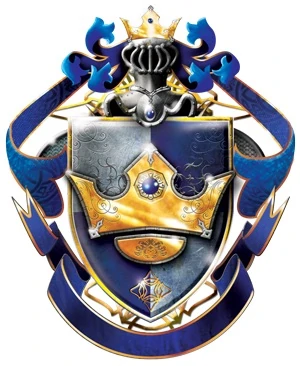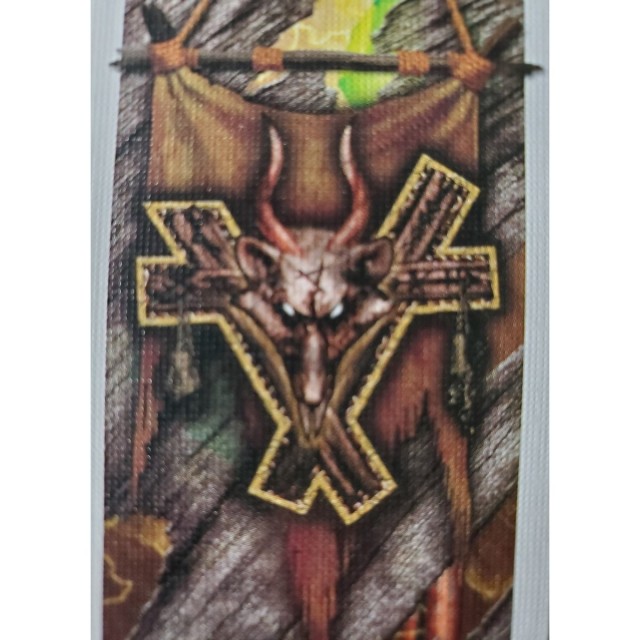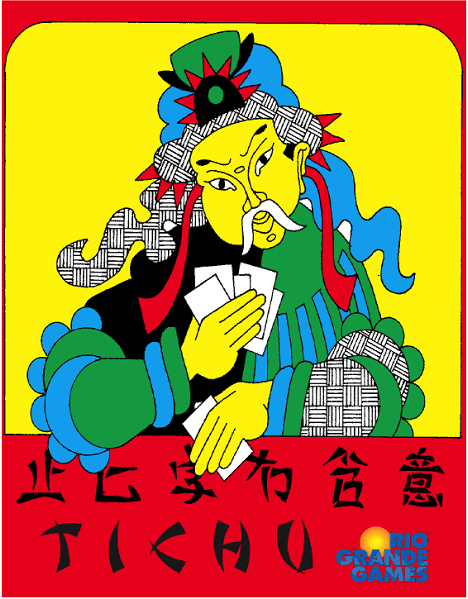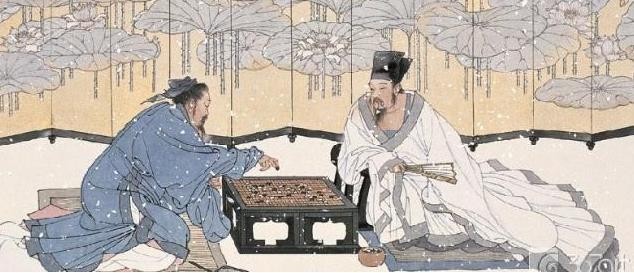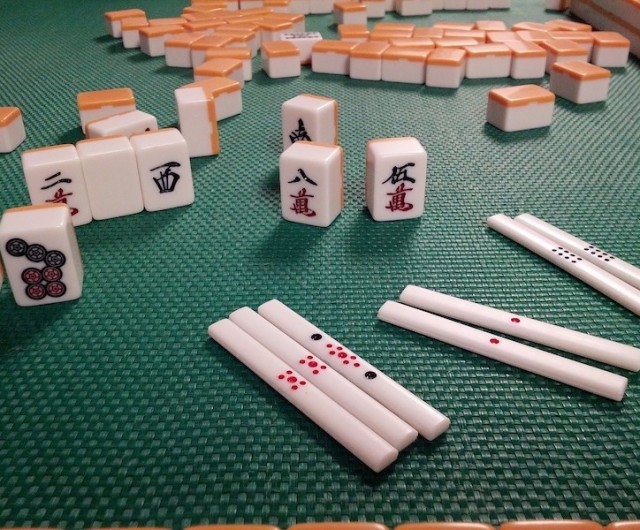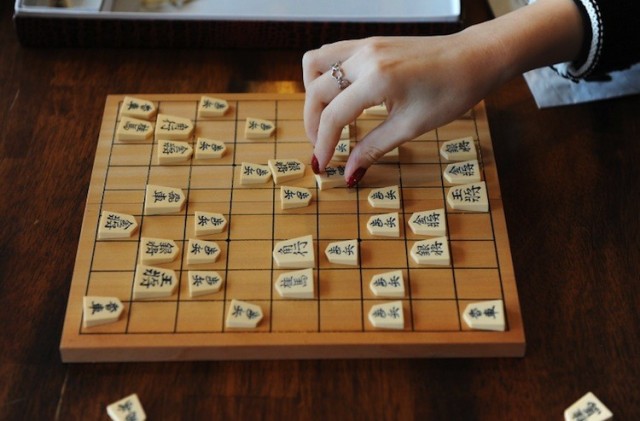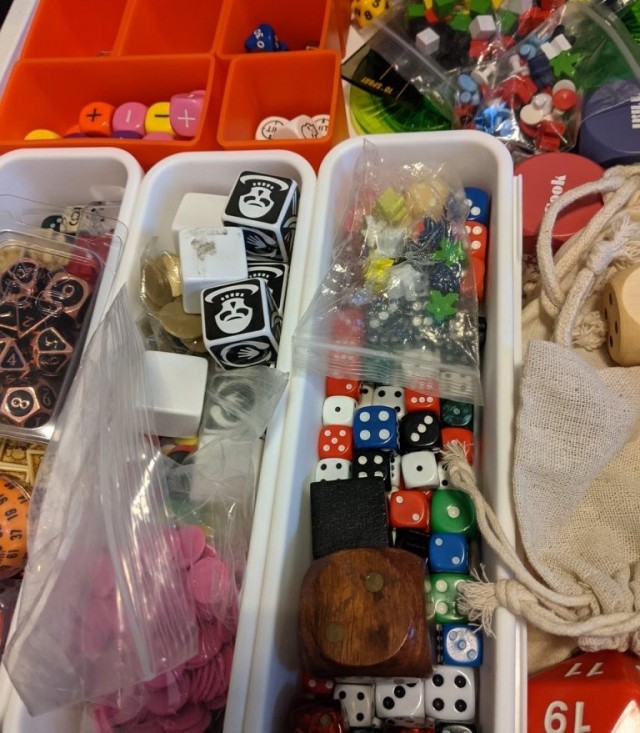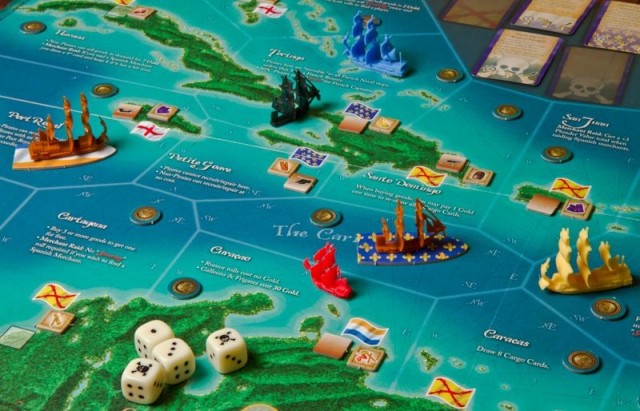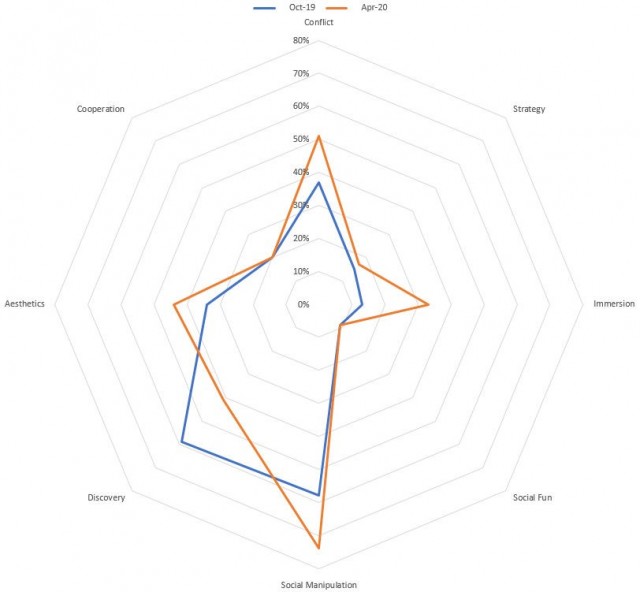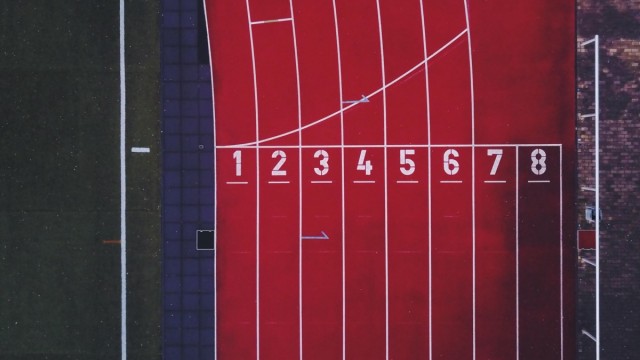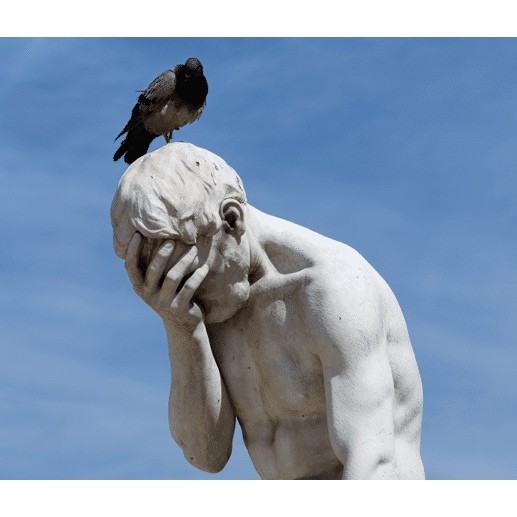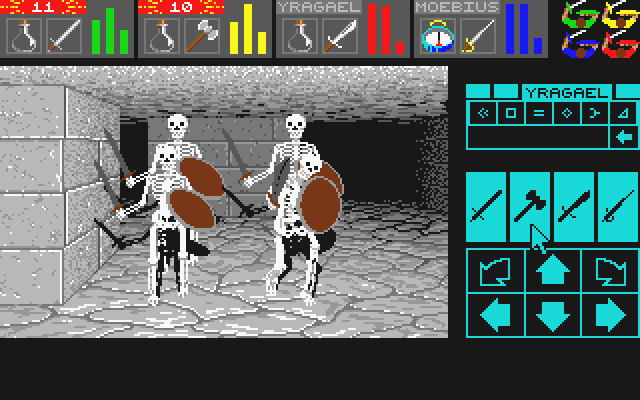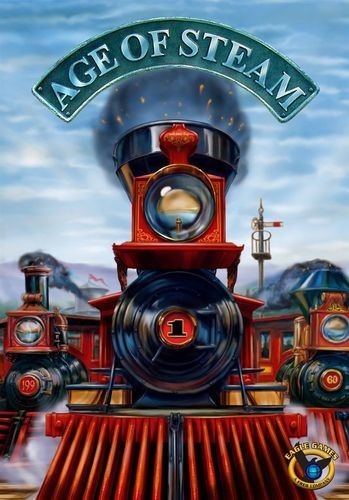“To be able to fill leisure intelligently is the last product of civilization, and at present very few people have reached this level.”
- Bertrand Russell
This is going to be a pseudo-review/pseudo game design discussion. I hope it generates some interesting comments. This game has been reviewed to death, so I am going to look at some of the design choices. I assume you know how to play.
Through the Ages is a great game that I have only played once. I'm also not an experienced civ player, so I hope more experienced players smack me down if I say anything incorrect about the game.

Here is my mini-review:
Through the Ages is yet another "civ-light" attempt with simpler rules and a shorter playing time. I don't think the playing time is that much shorter than original civ, but the rules are definitely a little more simple in my opinion. This game will feel very familiar to fans of the civ genre. I got the same epic feel of building an empire, complete with different technologies, leaders, science, all of it. If those feelings of grand scope, accomplishing something, and watching how your choices effect the development of your civilization long term are what you are after, this game is for you. The gameplay is great.
It is very well balanced for a civ game and barring some bad choices everyone will be within a few points of each other at the end usually. There is a little downtime, its a long game, but it is well worth it in my opinion. The different strategies you can take with your civilization are interesting, variable, and exciting. I am definitely going to buy the game, although I think I'll wait for the third edition to get the updated bits.
Now, on to what we are here for: A discussion of some of the design choices made in the game!
Where the hell is the map?

This map, or one like it, is NOT included with this game!
Greed is a fat demon with a small mouth and whatever you feed it is never enough.
- Janwillem van de Wetering
Maybe I am a greedy gamer, but where the hell is the map? What kind of civ game doesn't have a map? WHERE IS MY CIVILIZATION LOCATED? When I read that this was a civ game without a map, I thought, oh great, here comes an overly abstracted piece of shit that claims to be civ but actually plays more like carcassone with a bunch of fiddly stuff tacked on. As I read more about the game, I realized I was wrong, but it wasn't until I actually played the game that I realized that the failure to include the map wasn't just an attempt to save on production costs or abstract out the more wargamey pieces of civilization, it was brilliant.
What benefits do maps bring to civilization games? Well, for one thing they provide some initial differentiation between civs. Your position on the map establishes your natural enemies and allies; it establishes your starting strengths and weaknesses. One civ might start with a resource advantage, another This is thematic, as playing Rome, Egypt, the Saxons, or whatever is a lot more interesting starting point for a story than random blue civ, random red civ, random yellow civ. Plus, the map obviously serves as a platform for the military aspects of the game.
The problem with any map is that it is limited. Once you've played the possible countries and the different combinations, they are played out - replayability must be provided through interaction and other game mechanics. Another problem is that they starting civs are tied to their starting attributes, whatever they may be. With no map, the designer of TTA had to do the initial differentiation between the civs differently. He settled on using a combination of player choice and a "card market" to determine the starting positions of the different civs.
Initially, I thought the lack of a map was a copout, an abstraction where flavor dictated a map. I was wrong. In many ways, the elimination of the map increases the flavor of the game because it opens up so many options. What if two players want to play civilization X? Well, you can't do that on a map. One italy is one italy. However, with a mapless civ game like TTA, two players can play very similar civs - but you'll see the effects of that as they fight over the cards they need and otherwise compete for things on the card market. Another advantage is game balance. I do not mind an imbalanced game, especially where the imbalances are thematic. At the same time, a well balanced game can provide a much more competitive and surprising gaming experience rather than seeing the same powerful civilization win the game over and over.
Overall, I think the loss of flavor the lack of a map creates is offset by the advantages it gives the game. There is more flexibility/choice for the players, the game is more balanced because of the map, and there is more replayability as every civ will be very different every game.
Bashing the loser? Balancing Mechanisms.

This image has nothing to do with the subject matter of this section.
Our strength grows out of our weaknesses
- Ralph Waldo Emerson
I was very wrong about this one. After we finished playing, one of my fellow players and I both commented on how the events and military seem to bash the loser. That was an oversight on my part, we were totally wrong. The game designers recognized that ignoring military probably meant that you were spending your resources on something else - often, particularly early in the game, the player with the weakest military is winning the game because he's been spending his resources on generating victory points while the rest of you have been recruiting drunken thugs for your mongol hordes. When I first read the events, and quickly realized that they all nailed the person with the weakest military, I thought, holy cow this game bashes the loser! I could not have been more wrong. The event cards exist to bash on the VP leader and help out the folks who have paid attention to their military so far.
This game has a number of other clever artificial balance mechanisms, but it doesn't take them over the top. I like cleverly integrated mechanisms that prevent runaway leaders, give a boost to the players that haven't "figured it out," etc. I dislike it when those mechanisms are heavy handed or overshadow gameplay, which is a common feature in a lot of eurogames. The balancing mechanisms in TTA basically punish excesses. (maybe there is a beer connection here?) Too much population? Food penalty. Producing too many resources? Corruption penalty, pay some resources back. (the corruption penalty hits a little close to home in WV, see John Grisham's latest book based on my fine state for more details)
The only REAL bash the loser in the game is if one player falls terribly behind in military they become the whipping boy of the entire planet. Heres a strategy hint: don't let that happen to you and if it does, grab one of the cards that protects you from it, like Joan of Arc who gives you VP everytime you get whacked.
I think the balancing mechanisms in this game are subtle, clever, and reward good long term planning while punishing players who try to "quick fix" their way through the game. The military deck and the events also work to balance the game in many ways.
Abstracted Military? ewww...

You'll notice the "warriors" card in the top left.
One of the best ways to keep peace is to be prepared for war.
- General George Washington
With no map, I was curious as to how the game resolved combat. I was sorely disappointed when I read that the combat sequence had basically two steps. First, you add up the combat values for both sides (I'm simplifying that a bit). Second, you compare the values and the higher value wins the combat. Thats really all there is to it. To say that in theory this combat system turned me off would be the understatement of the year. In other news, the ocean is wet and the sahara is sandy. A similar abstract number comparison combat system turned me off in Starcraft (which I like, but not as much as I would if the combat system were better).
Unlike the lack of a map and the artificial balance mechanisms, I still haven't come around to the combat system in the game. Its basically raw, abstract numbers and different ways to manipulate those numbers that have very little to do with what the numbers represent. Would it add that much complexity to chrome up the military a bit? They did this with the air force, but I wouldn't mind seeing some other chrome bits. It would have been easy to throw them on the cards, and you don't even need extra rulebook space. Combats are so fast that an extra 10 seconds for a little chrome won't slow anything down.
Another problem I have with the military setup in the game is that it is rarely in your best interest to attack another country unless you can mercilessly beat its ass. Well unless you are playing against dolts, that just isn't going to happen. I can imagine many games of TTA where no military conflicts occur whatsoever because everyone quietly keeps their armies within a few "points" of each other so its never worth risking an attack. The military defense cards add to this. I'm not saying I want TTA to be some sort of wargame, but I would like to have seen the military aspects of the game play a bigger role. Maybe I need to play the game more, but it didn't seem like it would be common for a military conflict to really change the game. This is an area where I probably need to play the game a few more times to give it a good shot, because I am sure that different circumstances or playstyles could effect this. Any veterans have thoughts on this?
Conclusion (8/10, likely to go up to a 9)

The end of the human race will be that it will eventually die of civilization.
- Ralph Waldo Emerson
I really liked this game and I quickly realized that my petty gripes about it were probably necessary evils to create the game the designer had in mind. There are trade-offs you have to make in game design, like how much chrome to put in the combat, to map or not to map, and where to draw the line on balancing mechanisms to keep the game competitive without turning it into a meaningless candyland pile of crap where decisions don't matter.
Even considering my initial reservations about the game, I think that the designer of TTA got this one right on the nose. He did sacrifice some thematic elements for playability. That sort of thing usually gets a thumbs down from me, but I think that in this case, the positives outweigh the negatives.
My only legitimate gripe about the game is the sometimes lack of player interaction. I think the game would benefit a lot from some sort of catastrophe cards or something that you could occasionally play on other to feel like you are having a direct effect on the other players. This would also help with the downtime problem a little bit. I don't mind downtime, but I enjoy it a lot more when I spend said downtime plotting the downfall of my enemies. I know the event deck simulates catastrophes to a certain extent, but the "seed the deck" mechanism doesn't feel very interactive at all. Its interesting from a strategic standpoint, but doesn't have the "take-that" feeling of actually playing a bubonic plague card on your neighbor.
I think TTA is a great euro design with a strong theme and a lot of replayability. I hope this review generates some interesting discussion either about the game or about these topics generally.
Tom Hancock
 Games
Games How to resolve AdBlock issue?
How to resolve AdBlock issue? 
